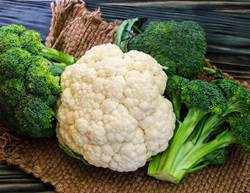Australians consume far too much sugar and overdoing it on the sweet stuff puts you at greater risk for chronic conditions such as type 2 diabetes and heart disease.
Experts emphasise that there’s nothing wrong with foods in which sugar occurs naturally (think, fruits and milk) but getting too much added sugar (that would be in soft drinks and other drinks, biscuits and cakes, and even random places like tomato sauce and salad dressing. Based on a 1600 calorie-a-day diet, up to 160 of those calories can come from added sugar.
While the need to cut back is clear, there are some confusing fictions about sugar. Here’s what you need to know.
Myth #1: Some sugars are healthier than others
Not so much. Agave, maple syrup, organic raw sugar, and table sugar are all similar when it comes to health effects, says Kelly Pritchett, Ph.D., R.D.N., an associate professor of nutrition at Central Washington University. On the glycemic index, which measures a carb’s impact on blood sugar, maple syrup hits 54—close to table sugar’s 65. Agave is lower, at 19, but it’s high in fructose, which is tied to metabolic syndrome and hypertension.
Research suggests that fructose (also in high-fructose corn syrup) is responsible for most of the negative health effects of sugar, says Kimber Stanhope, Ph.D., R.D., a researcher at the University of California, Davis. “Organic” simply means the sugarcane or sugar beets were grown without pesticides. “Raw” signifies that naturally occurring molasses has not been extracted—so raw sugar, while technically “less processed,” has the same nutrient profile as the regular kind.
Myth #2: Sugar should be avoided at all costs
Not necessary, thank goodness. Sugar should not be a huge part of your diet, but you don’t have to cut it out completely, says Marion Nestle, Ph.D., a nutrition professor at New York University. The USDA’s guidelines recommend that you get less than 10% of your calories from the sweet stuff, which is tricky, as sugar sneaks into surprising items like salad dressings, pasta sauces, and yogurts.
Too much can increase your risk of obesity, high blood pressure, type 2 diabetes, and possibly cancer. A 2017 study in Clinical Science showed that just three months on a high-sugar diet raised healthy people’s risk of heart disease. Instead of going cold turkey, take things slowly to wean your body from excessive added sugar, says the Good Housekeeping Institute’s Registered Dietitian Nutritionist, Stefani Sassos. You’ll retrain your taste buds to be satisfied with less sweetness after a few weeks.
Myth #3: It’s a good idea to swap in juice for soft drinks
Not so much. Fruit juice contains about the same amount of sugar as Mountain Dew. In fact, experts say no one should be drinking more than 230ml of juice daily. A study in the journal BMJ showed that all sugary drinks, including 100% fruit juice, significantly increased the risk of cancer. Another study, published in JAMA Network Open, showed that fruit juice, like soft drink, increased overall mortality risk. Your healthiest pour is definitely water. To jazz it up, try adding a few slices of orange or lemon for a fruity taste without sugar. If you must have juice, “make it orange juice—at least there are nutrients in it,” says Stanhope. But stick to one small glass.
Myth #4: Eating too much sugar gives you diabetes
Sugar may affect the management of type 1 and type 2 diabetes, but it doesn’t directly cause either form of the disease. “Being overweight is the biggest risk factor for type 2 diabetes, and sugar encourages overeating,” says Nestle. In other words, a diet high in calories from any source—not just sugar—contributes to weight gain, which increases your chances of metabolic dysfunction and type 2 diabetes. This form of the disease accounts for about 90% of the 463 million adult cases worldwide in 2019, according to the International Diabetes Federation.
Type 1 diabetes, on the other hand, is an autoimmune disorder in which the body mistakenly destroys its own insulin-producing cells. Someone with this form of diabetes needs to work closely with a physician to manage their medications and make the lifestyle changes needed to regulate blood sugar levels (one of which may be eating less sugar).
Myth #5: A big sweet treat means a major sugar rush
The opposite seems to be true: A 2019 review by researchers at Humboldt University in Germany found that rather than providing a quick boost, sugar made people more lethargic and less focused in the hour after they ate it. “The myth of the ‘sugar rush’ can be traced to studies suggesting that consumption of carbohydrates could make children hyperactive, an idea that has been debunked many times,” explains Konstantinos Mantantzis, a postdoctoral research fellow at Humboldt. In other words, if your kid seems wound up post-party, it’s probably the excitement—not the cupcakes—that is to blame.










